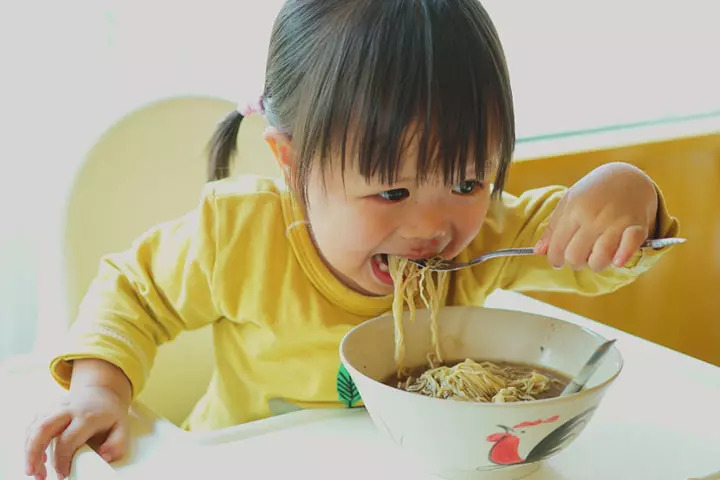
Encouraging your child to feed themselves not only saves you some time to do other things, but it also helps them to be a bit more independent. If your little one is able to sit up steadily and can handle a spoon and a fork, they might be ready to feed themselves. Besides, when your child feels more in control, they might form a better bond with food, with mealtime turning into an enjoyable experience. As your baby enters toddlerhood, they might be keen to do things more independently. Below we list down 5 ways to encourage independent eating in babies:
1. Get Them Seated
You don’t want your child screaming for food while you scurry to the kitchen looking for a spoon or the right bowl. Set the stage by keeping all the things that they would need on the table so that they feel more comfortable and confident. Invest in a booster seat or a high chair that brings your child to the same level as the table. Instead of giving them the spoon or fork that you normally use, it’s best to get them child-friendly spoons that are designed with big handles for better grip. To prevent your little one from spilling, offer food in bowls or plates with raised sides. A non-slip placemat makes dining a comfortable experience for your child.
2. Set A Schedule
Create a mealtime schedule that works for your family. Set up a schedule for your child with three meals plus a morning and evening snack. Try to follow a fixed time for the meals and snacks and space enough time between each so that your child feels hungry enough during mealtime. If you are confused about how long you should wait before offering them the next meal, it’s best to leave 3 hours between a snack and the next meal.
3. Introduce Them To New Foods
It’s important to consider their food preferences and offer them the right foods. Start with soft items that they can easily chew such as banana chunks and bite-sized veggies. Give them small portions of food that they can eat. When introducing new foods, it’s best to keep the choices to a minimum so that they don’t feel overwhelmed. Pair a new food with something that they have eaten before. Also, don’t forget to praise your little one when they try the new stuff.
4. Be Present With Your Child
Make mealtime fun and interactive by being present with your child. As much as you might be tempted to leave the food on the table and get to other chores and activities, sit, talk, and engage with your child about the different colors, shapes, and textures of food. Always keep a close eye on your child while they’re eating to prevent accidental fall or choking hazards. Also, including your child in family mealtimes even if they are not having a full meal will provide them an opportunity to learn, observe, and mimic later.
5. Embrace The Mess
As a parent, it’s high time that you learn to live with the mess if not embrace it. Because no matter how much you wish to keep things neat, things are bound to get a little messy with a baby in the house. The right kind of cutlery and accessories can help contain the mess to an extent but be prepared for a few stains on your baby’s clothes. Every time you get annoyed trying to scrape the spaghetti off the wall, remember that it’s one step towards another developmental milestone. If your child turns out to be a messy eater, it might be efficient to keep a damp cloth nearby for easy cleanups.
While you might be excited to watch your little one grab a fork and chew on a chicken nugget, don’t be disheartened if your child isn’t ready to self feed yet. Babies take their own time to start eating independently. So, don’t fret if your baby takes slightly longer than others. Cherish the time your baby still prefers you to feed him/her.

















